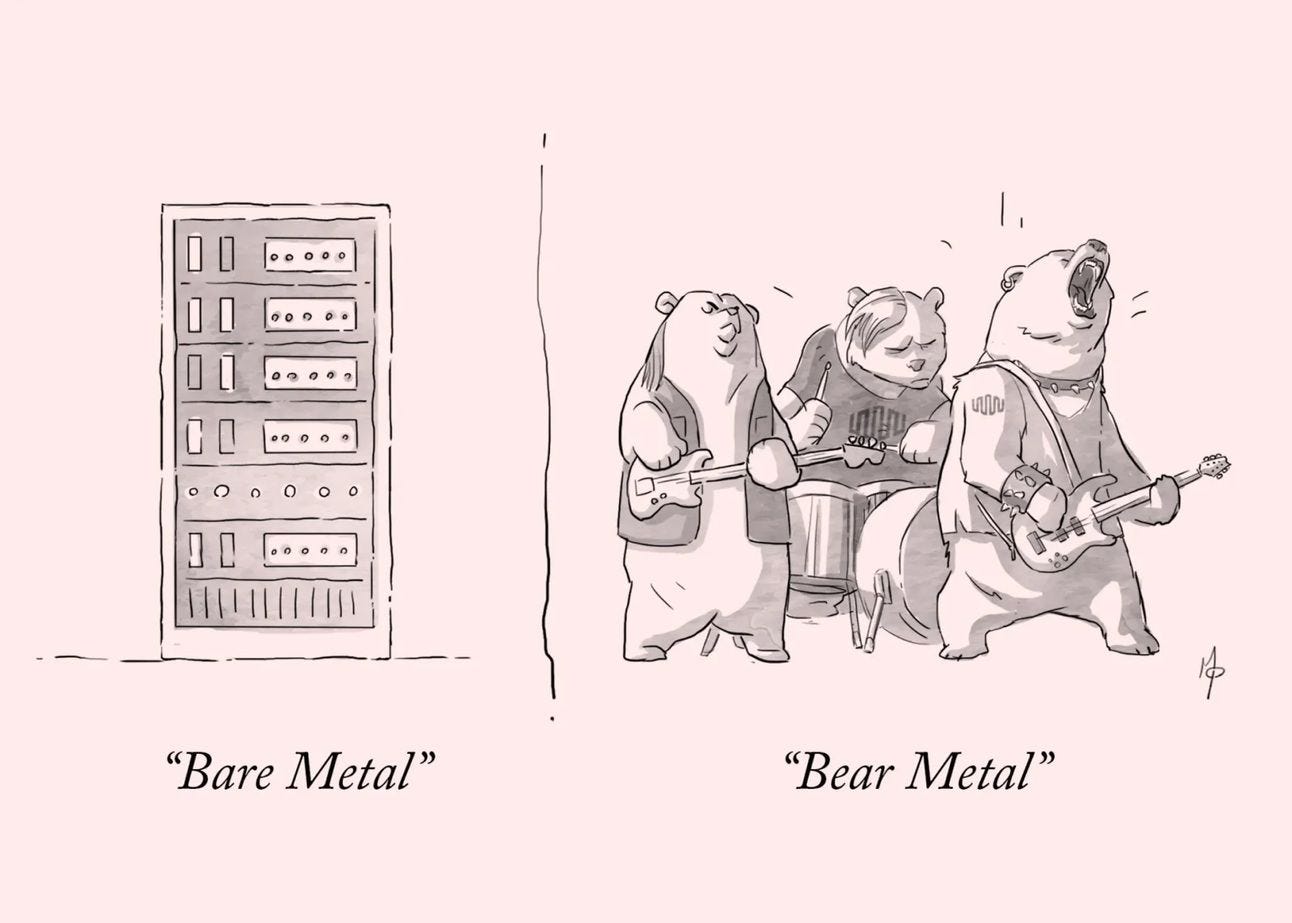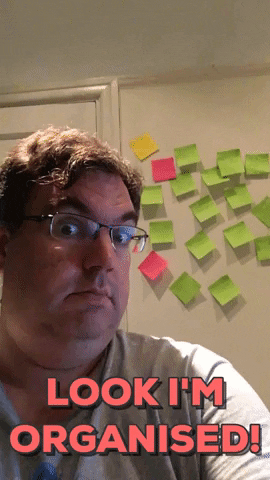The cloud has to change, the agile methods fail & we need better direct feedback
Zeitgeisters, what I have to rage these days…
I had two primary funny discussions the last week. First, that cloud is the only solution we need in the future. I couldn’t hold my laugh. If cloud means matrix and we have a universal distributed cloud that doesn’t know provider-specific software-defined specifications, then yes. Otherwise, hell no.
Second, one was trying to convince me that having ca. seven months of “experience” as a Scrum Master makes one already a veteran in this field. We couldn’t find a joint agreement, but it's clear that with practically no experience, you haven’t even left the diapers stage of your new career.
Why we still do cloud like it’s 1999?
Calm down, I know cloud is not that old. But IT et al, and especially the way how we build, host and maintain software is - and even older. But I wonder why we still run it/IT like decades ago? Observing cloud migration projects failing, which then becomes a cloud transformation project, which fails; and then you establish a Cloud Center of Excellence (CCoE), who should do the cloud work for you. Bad news: in most cases, your organization still fails.
We have an actual shortage of new professionals on the market, while the old generation is looking for retirement and not motivated to learn something new. And many middle-aged people don’t enjoy using the cloud. However, the technologies also don’t get more complex; they just get more. And for each layer, you need another expert. We practically cut down our available pool of experts through the amount of layers we stack together. And yes, I’m with you; if everyone would try to build their own layers, we would even need more people. But that’s not the answer. We need a renaissance of IT throwing all mid layer tech out of the window, ideally together with the organizations saying, “We have done this always like this” and are not open to new concepts.
All credits to Equinix https://deploy.equinix.com/blog/bare-metal-bear-metal/
Web 3.0 (and later Web3) and distributed ledger technology were promising directions. Simple, safe ways to run software. Yes, your 2000’ windows software doesn’t run on it, the mainframe also has hard times to migrate and all that uselessly collected data, the new gold, would be to expensive to store on it. All of it is right, but you are looking at the public parts of that tech. Why not combine them? Why not make your software easier to run? And most likely safer…
A funny anecdote about the safety of your data. Many years ago I had the advisory to a publishing company. They defined their knowledge as a digital asset of high value and must be better accessible, so a cloud project it was. After some time, the company's owner received the list of potential security risks our favorite cloud provider might have, and the project was done… The beauty of family businesses. The reason? He believed that their own data center is better protected and has fewer risks. On the way out, I had to walk across the courtyard and passed by an old little rusty door that was half open. I was curious because, normally, any door on that property was closed, as some parts of the property were publicly accessible. So I took a look and called to see if someone was in. There was no answer, just the loud sounds of hundreds of cooling fences for the servers. Now I know where the data is resting, and now I know that protecting that data is just an old rusty door. I wasn’t even sure it was waterproof.
Back to business. Web 3.0 and its descendants were screwed by scams, its early adoption with a not yet ready-developed solution landscape, and many people who doubt that this tech is serious. ICP, Algorand and co might drive a new renaissance. I hope so.
What do you think? What needs to change?
Why are so many organizations doing Scrum, SAFe and co wrong?
It’s fascinating how wrong you can do a thing when you believe it’s simple and just because you want it you are able to do it. The best agile projects I was in are at least 5 or more years ago. But today, as it has become a commodity, the projects are just degrading in their quality, acceptance of the method and the overall education of the frame you are working in.
Scrum or SAFe is not an organization form; stop it. When your whole company becomes an “agile" powerhouse” that is “dynamically deciding,” you are on the wrong track. But why is it that those methods have become so horribly wrong used?
From my observation, it’s all about experience. People call themself Scrum Master or RTEs after doing training and a certificate. What we are missing is real training and experience sharing. Run first with some projects alongside and learn how to do it right. Then, get your first team and slowly, with time, grow into the role. Some good 2-3 years will get you rolling. That takes to long? That’s how it takes when you want to become professional in something.
Another example is SAFe. SAFe requires work. You are not SAFe if you meet every few months to drink coffee and pep-talk with your team. You need to have an actual Product Owner, like a real one. Not someone who has never managed a “product”. You also need a meeting culture that is not eating your time because you have actual work to do: plan features, define dependencies, align with the business, etc. When you go into PI planning, then this is about explaining what's on the way, why it's needed, and what support you require. But if you start writing epics and features just in the PI and think that something “might be a good idea”, you are too late doing your job.
All of those wrongly done frameworks and career wishes are leading to constantly failing, depressed and demotivated teams. And so the death spiral is on.
My learning of the week
People can’t take criticism and hard talks professionally anymore
This week, I understood that we are getting soft-washed. We have to respect everything; we can’t be too direct, as it might hurt one, and from tons of training, you shape your speech so that it doesn’t offend anyone. Work is not your family. If it is, it means unconditional love, loyalty and no payment. Work is like a professional sports team. Every team member wants to be the best at what they do. Together, they want to be the best team. Their leads are the coaches, and the directors of the club are similiar to the managing directors of a company. And perhaps they all play in the same league with many other teams. This is, how work should be.
If someone tells you your shooting technique is horrible and you're never going to make it, it is not a critique of your feed, your personality, your character, or anything else. It is purely a critique of the way you do the thing. But this is exactly what young people today no longer have. Critiquing your technique is the same “hurtful” as personally attacking one. But where does this all start? In the elementary schools where you don’t get marks, or you don’t win a school cup and everyone gets a medal for participation? Or university where our speech gets so much polished that we express ourselves in complicated not to piss others off? Or maybe in our classic corporate feedback burger training. Please if you have such, change your trainers, that’s outdated!
On the other hand, it is interesting to talk to other leaders who almost all share the same viewpoint. Go back to more constructive feedback: No cushimushi, that's the situation, that's the problem. Here is an idea of how to fix that. As you see, it's not about what we want to improve; it is about how. Super polite, positively packed feedback doesn’t find its way.
Just wanted to say that I dislike footbal, but for some reason it fits well.
A good approach is the CORE method:
C — Context (What happened in the specific situation?)
O — Observation (Tell what was done or said.)
R — Result (What is the result of that action?)
E — Expected next steps (What are the expected next steps?)
Example: “You were asked to write two simple Terraform modules for our customer project X (context). Both modules that you delivered were not well received by the customer (observation). The team had to spend additional hours improving the code quality and reliability of the modules so that they could pass the tests (result). For the next modules take your time and ensure that they adhere our quality standards. If you need further assistance please ask your colleagues for early feedback or take some time to educate yourself more on it.(expected next steps)”
Now, that’s not precisely “hard” feedback. But even such feedback has become rare because the more often you have to give that, the less well people feel. But its a question of the mindset.
Whats your feedback on feedback?
The Treasure Hunt
Platform Engineering is for Everyone: Platform Engineering isn’t only focused on developers, it brings actual business value and a competitive advantage https://thenewstack.io/platform-engineering-is-for-everyone
Google data centre in Ireland blocked after NGO calls out ‘greenwashing’: https://www.edie.net/google-data-centre-in-ireland-blocked-after-ngo-calls-out-greenwashing
Public clouds are 'dirty' about VMware's on-prem push, says Broadcom CEO Hock Tan: https://www.theregister.com/2024/08/29/hock_tan_vmware_private_cloud
I hope you liked what you read.
See you later ;)





